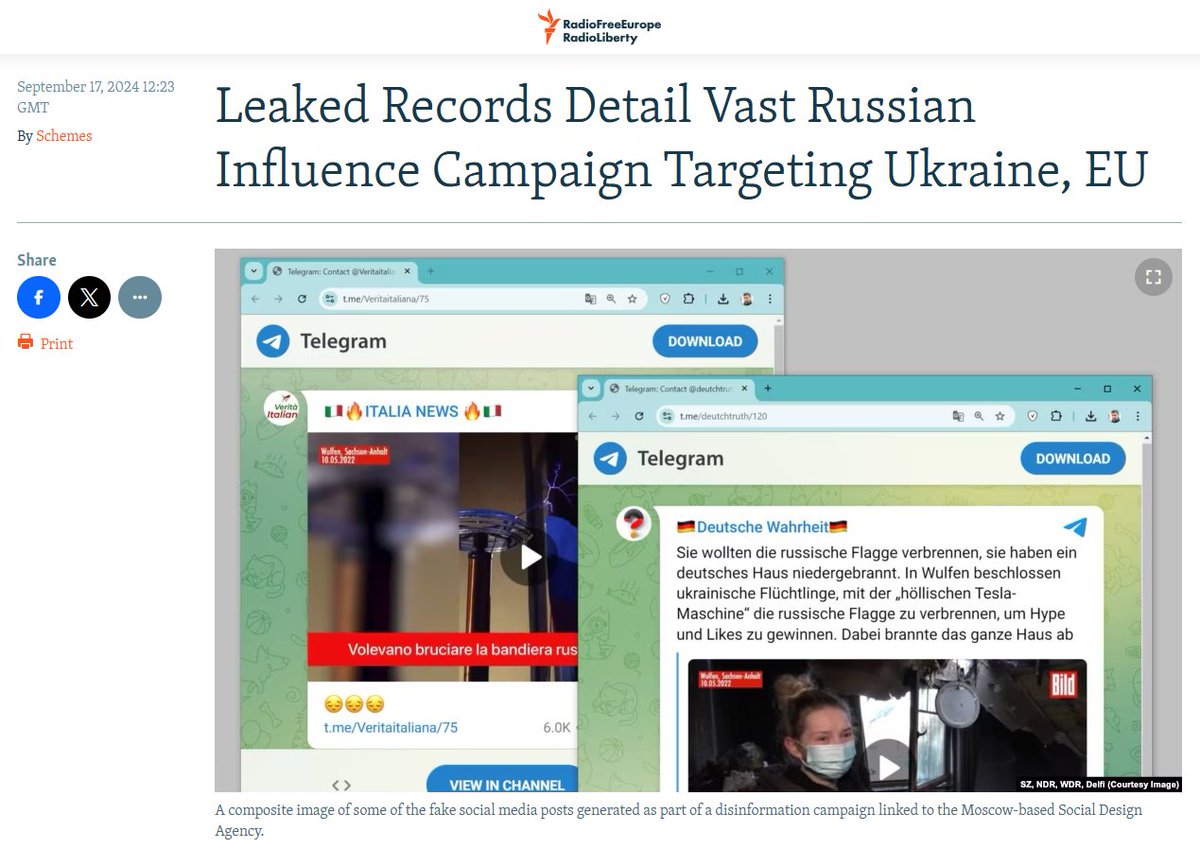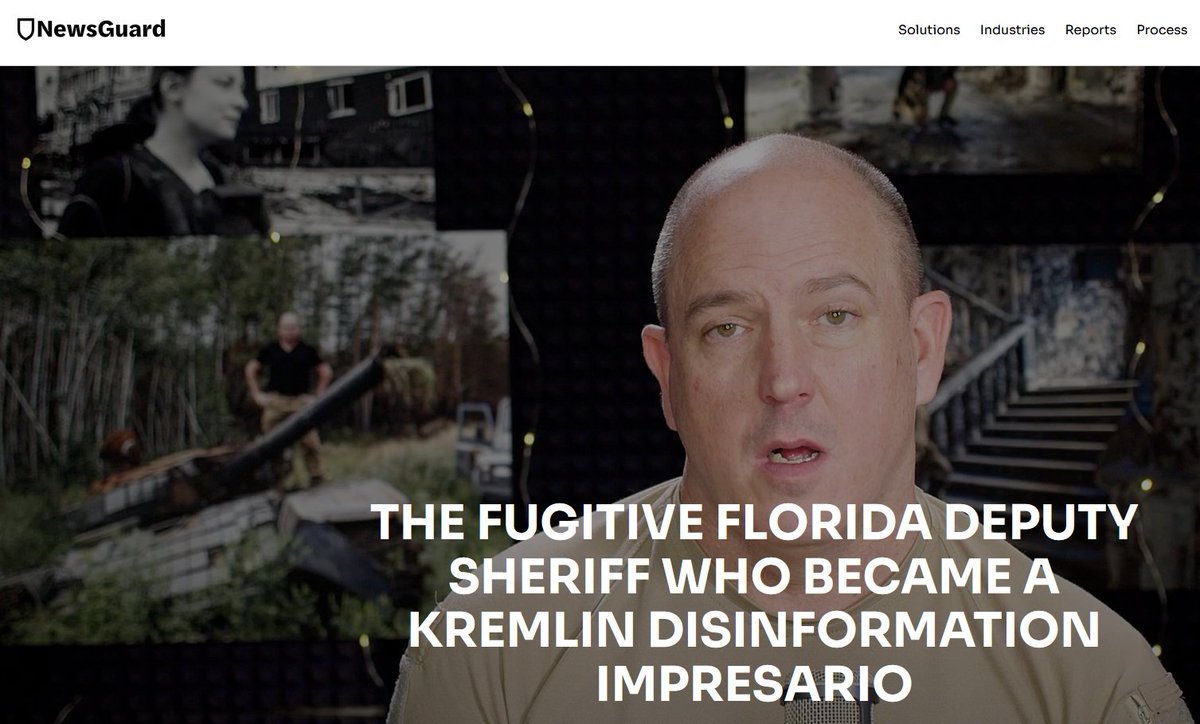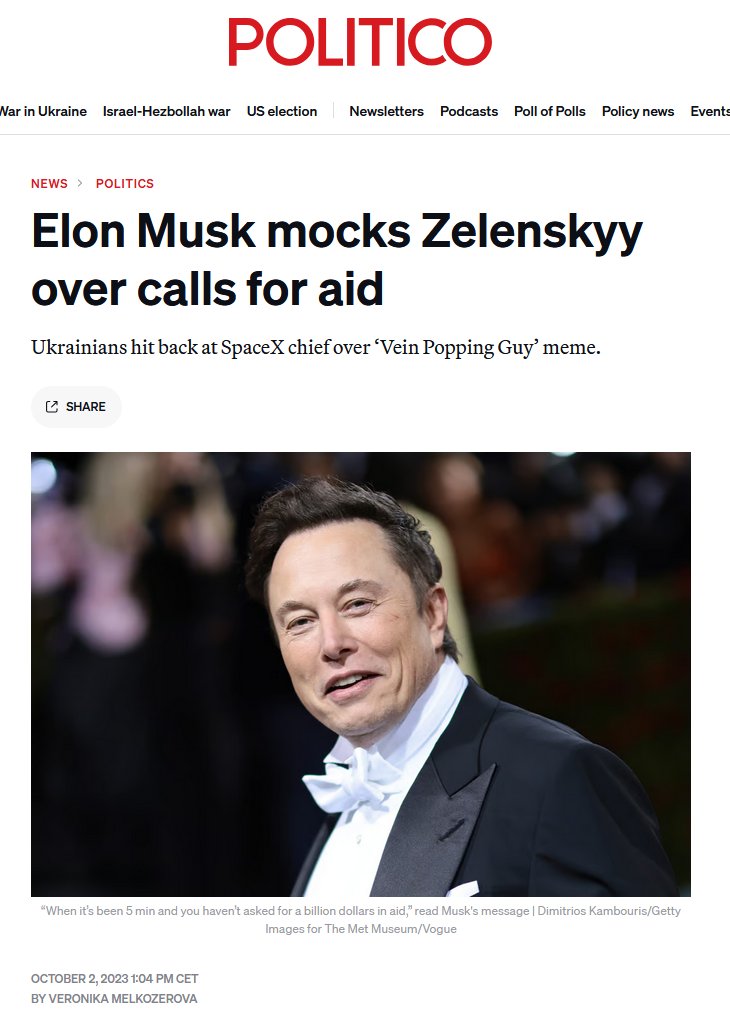In today’s #vatniksoup, I’m going to outline the current situation in the West’s information war against Russia & its allies. Currently,the West’s counter-disinformation measures are severely underfunded,making it difficult to combat Russian influence operations effectively.
1/17
1/17

Europe today is repeating the same mistake in information warfare that it made in conventional warfare: we are not dedicating enough resources to counter it. Just as Europe was unprepared to fully support Ukraine and prepare for kinetic warfare against Russia,...
2/17
2/17

...we have been neglecting information warfare. Next year, Russia is reportedly set to spend around 3 billion USD on its information operations domestically and abroad, with allies like the CCP, Iran, and North Korea likely following suit.
3/17


3/17



In the EU, each country has its own funding for countering disinformation and foreign influence operations, but these budgets are minuscule compared to what our adversaries spend. The farther a country is from Russia, the more vulnerable it becomes to these operations,...
4/17
4/17

...and the less it tends to spend — a very troubling trend. For example, Russia continues to carry out large-scale propaganda and “soft power” operations in Italy, and Spain's Vox party was funded in part by a bank owned by Viktor Orban, a close Russian ally.
5/17

5/17


I recently attended the Disinfo 2024 conference, where much of the discussion centered on the West’s successes in detecting Russian disinformation operations such as Doppelgänger. Since then, many more campaigns and operations have been uncovered by authorities,...
6/17
6/17

...investigative journalist groups, and researchers. Some examples include the money laundering operation involving the US-based social media company TENET Media, the Russian troll farm Social Design Agency (SDA), and a large-scale, automated fake news blog network...
7/17

7/17


...organized from Moscow by the American vatnik, John Mark Dougan.
What the EU lacks is cooperation between countries and organizations, as well as a strong enough response to the nations orchestrating these operations.
8/17
What the EU lacks is cooperation between countries and organizations, as well as a strong enough response to the nations orchestrating these operations.
8/17

As is tradition, the EU regulates, but regulation is always too slow to respond to the rapid pace of online operations. To effectively counter them, the West must develop a rapid response strategy. One such strategy is utilizing social media movements such as NAFO.
9/17

9/17


The alarming conclusion is that the EU is consistently one step behind, struggling to recognize that the information war against Russia and its allies is an ongoing conflict—and at the moment, we are losing it badly.
10/17

10/17


The situation in the US is even worse. Aside from recent Department of Justice indictments against TENET Media and the Doppelgänger project, the US is quickly heading toward a reality where disinformation becomes a core political strategy,...
11/17
11/17

...and foreign influence operations are largely ignored. Strong signals of this shift are coming from the Heritage Foundation’s Project 2025, which is said to be a "blueprint for a Trump presidency" should he win the 2024 election:
12/17
12/17
https://x.com/P_Kallioniemi/status/1843261950710722687
The project proposes defunding the Cybersecurity and Infrastructure Security Agency (CISA), one of the key organizations combatting foreign influence and disinformation.
13/17
13/17

Elon Musk's acquisition of Twitter has worsened this problem, and one large Russian operation even concluded that X is currently the only social media platform where you can conduct large-scale disinformation operations effectively.
14/17
14/17

Elon himself has spread propaganda memes produced by these troll farms. The Center for Countering Digital Hate has stated that Musk's fake posts on US elections have been seen over 1,2 billion times.
So, the future is looking pretty grim right now.
15/17

So, the future is looking pretty grim right now.
15/17


However, there have been some positive signs and interesting developments. Through transparency, Western intelligence agencies and think tanks like the Institute for the Study of War have exposed several kinetic operations planned against Ukraine and the West.
16/17

16/17


Now, we need to apply the same level of transparency to Russia’s propagandists and their online operations. Doing so would greatly reduce their effectiveness against Western democracies.
Instead of always reacting and debunking, we need to start prebunking.
17/17
Instead of always reacting and debunking, we need to start prebunking.
17/17

My book, titled Vatnik Soup: The Ultimate Guide to Russian Disinformation, has been published. You can order it here:
kleart.dk/webshop/p/vatn…
Or on Amazon:
amazon.com/Vatnik-Soup-Ul…
kleart.dk/webshop/p/vatn…
Or on Amazon:
amazon.com/Vatnik-Soup-Ul…
• • •
Missing some Tweet in this thread? You can try to
force a refresh

































